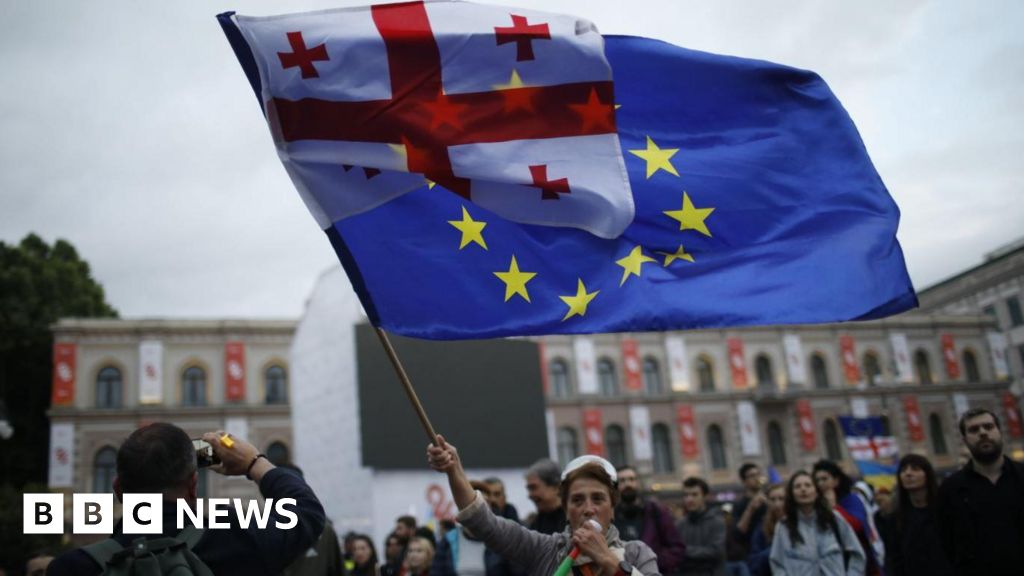- Author, Kathryn Armstrong
- Role, BBC News
-
Georgia’s path to EU membership has come to a standstill because of a controversial foreign influence law, European leaders said at a summit in Brussels.
They said the law amounted to “backsliding” on Georgia’s path to membership, “de facto leading to a halt of the accession process”.
Georgia was only granted EU candidate country status last December after being given a list of steps it needed to take to proceed, including justice reform.
European Union officials have strongly condemned Georgia’s new foreign influence law, which was passed amid major anti-government protests and is due to come into effect next month.
Opponents have dubbed it a “Russian law” because of its similarities with an existing law in Russia and believe the real reason for the legislation is to stifle dissent ahead of October’s parliamentary elections.
Under the law, media and non-governmental organisations that receive more than 20% of their funding from abroad will have to register as “organisations acting in the interest of a foreign power”, submit themselves to stringent audits, or face punitive fines.
The Georgian government argues the rules will ensure transparency of money flowing to support NGOs and protect Georgia from foreign interference.
But the EU’s ambassador to Georgia, Pawel Herczynski, said last week that Tbilisi and the European Union were going through a difficult period.
“The adoption of this law, as I see it, froze Georgia’s integration into the European Union,” he said according to Georgia’s Interpress news agency.
The US has previously said the law threatens free speech.
Thousands of Georgians have taken the streets in recent weeks to oppose the measure and there have been reports of NGO workers, activists and opposition politicians receiving threats or being physically assaulted at rallies.
EU leaders on Thursday also called for an end to “the increasing acts of intimidation, threats and physical assaults against civil society representatives, political leaders, civil activists and journalists”.
They said they would continue to monitor the situation in Georgia closely and called on the government to ensure the upcoming elections were “free and fair”.

